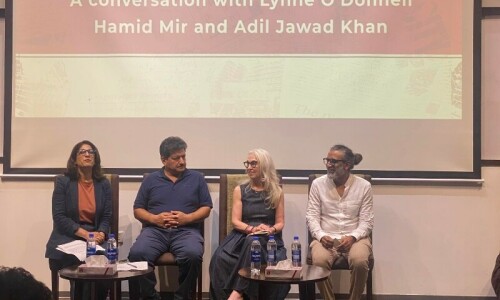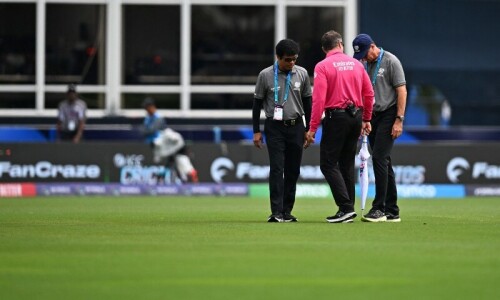ISLAMABAD: Senior counsel Hamid Khan, representing the Supreme Court Bar Association (SCBA) and other bar associations in a petition challenging the reference against Justice Qazi Faez Isa, argued before the Supreme Court on Tuesday that the president had sent the reference on the basis of a “misconception” that the prime minister’s advice was binding on him.
The counsel contended before a 10-judge full court of the Supreme Court that the president had to make an independent opinion before forwarding the reference against a judge on misconduct charges to the Supreme Judicial Council (SJC).
But going through the complaint, Mr Khan said, it appeared there was a confusion that since the information had been sent on the advice of the prime minister, it was binding and the president had to form an opinion on the basis of such advice.
On the contrary, the counsel contended, the president had to satisfy himself independently since the matter, when referred by the prime minister or the cabinet, was simply a piece of information and “needed to crystallise” first.
Hamid Khan, who is expected to conclude his arguments on Wednesday (today), is representing four petitions challenging the filing of the reference against Justice Isa.
The petitions were filed by SCBA, Quetta Bar Association president Mohammad Asif Reki, the Balochistan Bar Council and Punjab Bar Council’s vice chairman Shahnawaz Ismail.
During the hearing on Tuesday, Justice Yahya Afridi wondered how one can expect that the president would hold a preliminary inquiry first after the prime minister sends the information against the judge and even if the president decides to hold the inquiry, what sources will he apply when the executive has already sent the information.
Although the information was initiated through a private complainant Abdul Waheed Dogar, it was “crystallised by the executive”, Justice Afridi observed.
The counsel argued since the president did not see the substance in the reference, he did not form his independent opinion before sending it to the Supreme Judicial Council.
The opinion of the prime minister was taken as if it is the president’s opinion when the reference was referred to SJC, the counsel said.
There was no need to seek advice from the executive when the reference was submitted to the president under Article 209 of the Constitution, Hamid Khan argued.
Likewise, the SJC should have held a preliminary inquiry before issuing a show cause notice against the judge, the counsel said.
Since the president enjoys a special position as head of state and interacts will the three organs — legislature, executive and the judiciary — he should be seen to be as apolitical and non-partisan person, the counsel said.
Justice Syed Mansoor Ali Shah inquired of the counsel whether the president was bound to get advice from the prime minister for forming his opinion if the complaint was sent by the latter himself.
Justice Maqbool Baqar observed that opinion forming was an essential duty of the president and he has to form his opinion like any other prudent person does.
Justice Faisal Arab asked the lawyer whether the president can call a judge for certain clarification before forming an opinion on referral of a matter to SJC. “Will it not hurt the independence of the judiciary,” the judge wondered.
“What if the president has some personal grievance against a judge,” Justice Muneeb Akhtar put a question to Hamid Khan. “Will it not lead to chaos if the president summons the judge against whom he has received a complaint to explain his position before forming an opinion that the judge is guilty of misconduct or not.”
The counsel contended the president had to apply his mind independently by checking the reliability, credibility and fairness of a complaint before completing the process of sending the reference to SJC.
Published in Dawn, December 18th, 2019












































